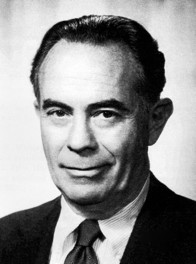James G. Hirsch
James G. Hirsch was a prominent American physician and researcher known for his significant contributions to the field of immunology and hematology. He was particularly noted for his work on phagocytosis and the role of white blood cells in the immune response.
Early Life and Education[edit | edit source]
James G. Hirsch was born in New York City. He attended Harvard University, where he earned his undergraduate degree. He then went on to receive his medical degree from Columbia University College of Physicians and Surgeons.
Career[edit | edit source]
Hirsch began his career at the Rockefeller University, where he conducted groundbreaking research on the mechanisms of phagocytosis. His work helped to elucidate the processes by which neutrophils and other white blood cells engulf and destroy pathogens. This research was crucial in advancing the understanding of the immune system and its functions.
Research Contributions[edit | edit source]
One of Hirsch's most notable contributions was his research on the biochemistry of phagocytosis. He identified key enzymes and biochemical pathways involved in the process, which paved the way for further studies on cellular immunity. His work also had significant implications for the treatment of infectious diseases and autoimmune disorders.
Awards and Honors[edit | edit source]
Throughout his career, James G. Hirsch received numerous awards and honors for his contributions to medical science. He was a member of several prestigious organizations, including the National Academy of Sciences and the American Academy of Arts and Sciences.
Personal Life[edit | edit source]
Hirsch was married and had children. He was known for his dedication to both his family and his work. In his later years, he continued to be active in the scientific community, mentoring young researchers and contributing to various scientific publications.
Legacy[edit | edit source]
James G. Hirsch's work has had a lasting impact on the fields of immunology and hematology. His research continues to influence current studies and treatments related to the immune system and blood disorders. He is remembered as a pioneer in his field and a dedicated scientist.
See Also[edit | edit source]
- Immunology
- Hematology
- Phagocytosis
- White blood cells
- Neutrophils
- Rockefeller University
- National Academy of Sciences
References[edit | edit source]
External Links[edit | edit source]
Search WikiMD
Ad.Tired of being Overweight? Try W8MD's NYC physician weight loss.
Semaglutide (Ozempic / Wegovy and Tirzepatide (Mounjaro / Zepbound) available. Call 718 946 5500.
Advertise on WikiMD
|
WikiMD's Wellness Encyclopedia |
| Let Food Be Thy Medicine Medicine Thy Food - Hippocrates |
Translate this page: - East Asian
中文,
日本,
한국어,
South Asian
हिन्दी,
தமிழ்,
తెలుగు,
Urdu,
ಕನ್ನಡ,
Southeast Asian
Indonesian,
Vietnamese,
Thai,
မြန်မာဘာသာ,
বাংলা
European
español,
Deutsch,
français,
Greek,
português do Brasil,
polski,
română,
русский,
Nederlands,
norsk,
svenska,
suomi,
Italian
Middle Eastern & African
عربى,
Turkish,
Persian,
Hebrew,
Afrikaans,
isiZulu,
Kiswahili,
Other
Bulgarian,
Hungarian,
Czech,
Swedish,
മലയാളം,
मराठी,
ਪੰਜਾਬੀ,
ગુજરાતી,
Portuguese,
Ukrainian
Medical Disclaimer: WikiMD is not a substitute for professional medical advice. The information on WikiMD is provided as an information resource only, may be incorrect, outdated or misleading, and is not to be used or relied on for any diagnostic or treatment purposes. Please consult your health care provider before making any healthcare decisions or for guidance about a specific medical condition. WikiMD expressly disclaims responsibility, and shall have no liability, for any damages, loss, injury, or liability whatsoever suffered as a result of your reliance on the information contained in this site. By visiting this site you agree to the foregoing terms and conditions, which may from time to time be changed or supplemented by WikiMD. If you do not agree to the foregoing terms and conditions, you should not enter or use this site. See full disclaimer.
Credits:Most images are courtesy of Wikimedia commons, and templates, categories Wikipedia, licensed under CC BY SA or similar.
- American immunologists
- American hematologists
- Harvard University alumni
- Columbia University College of Physicians and Surgeons alumni
- Rockefeller University faculty
- Members of the United States National Academy of Sciences
- Members of the American Academy of Arts and Sciences
- Scientists from New York City
- Year of birth missing
- Year of death missing
- Medicine
Contributors: Prab R. Tumpati, MD

